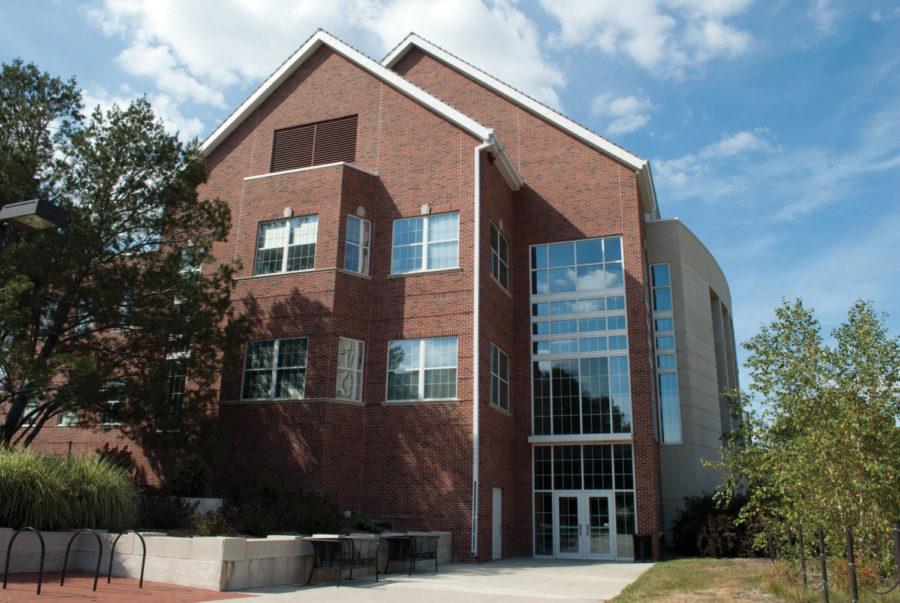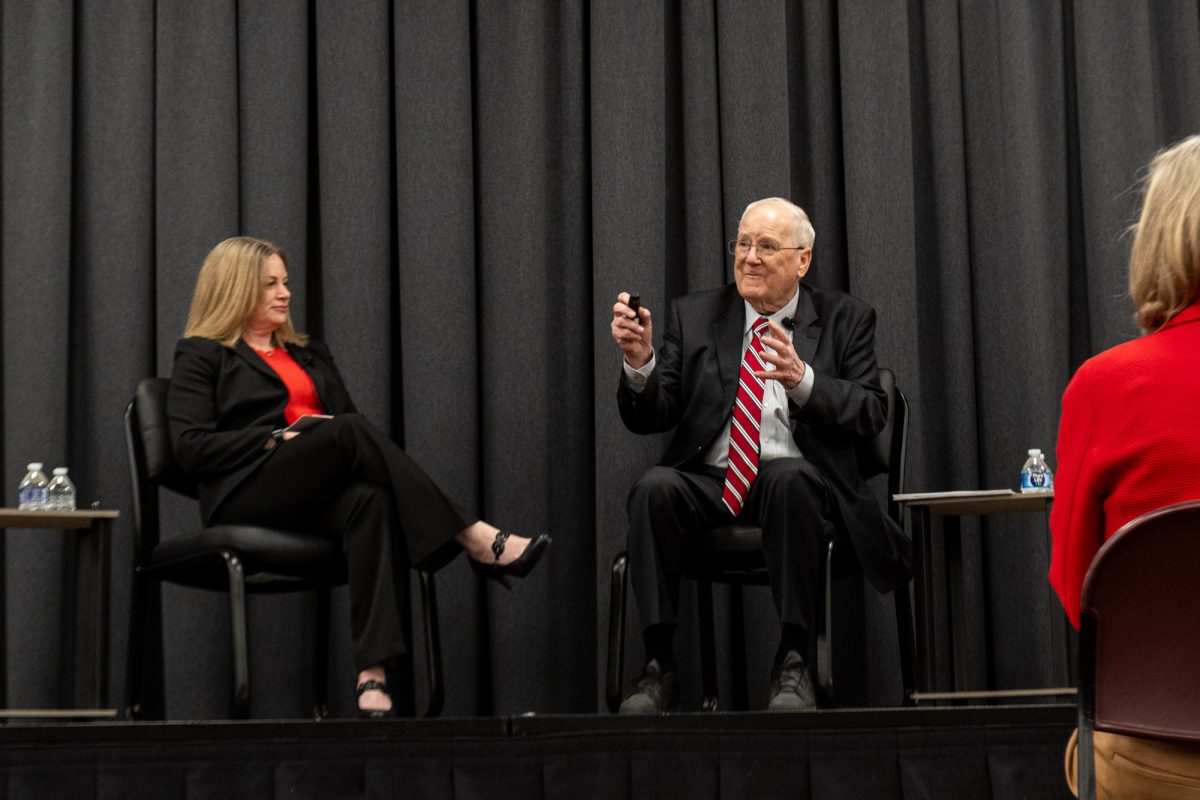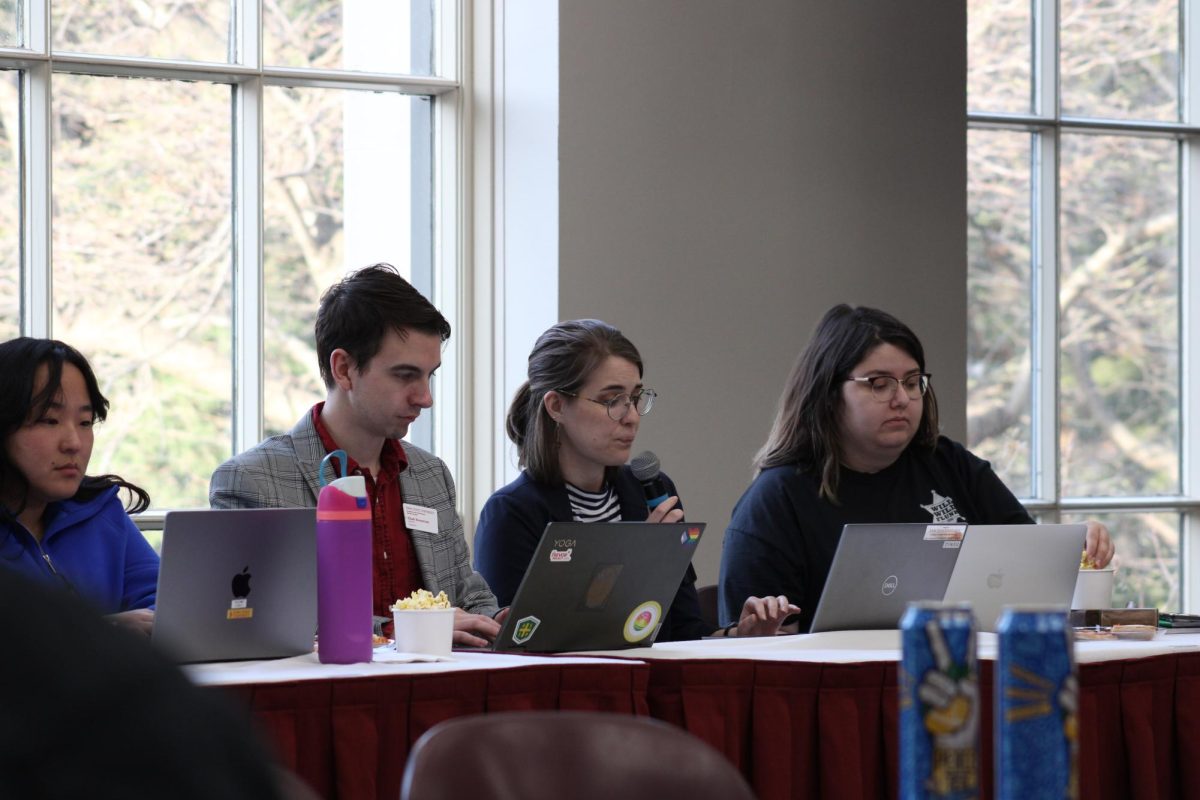Professors discuss their final creation process
December 8, 2018
Throughout the final two weeks of the semester, students submit projects and take exams to determine their final grades, but professors spend time year-round figuring out which types of assessments will work best for their classes and their students.
When planning their final assessments, instructors consider the material they’ll teach, the level of understanding they expect from their students and a variety of other factors all leading to students having different types of assessments at the end of the semester.
Lesya Hassall, the learning designer and program coordinator at Iowa State’s Center for Excellence in Learning and Teaching, said there are many variables in determining which type of assessment will be most effective for a particular course.
“Assessment is always very much dependent on the pedagogical context and the situation,” Hassall said. “The instructor is always thinking of students becoming something as a result of that course, and there are certain learning objectives that an instructor has in mind that even five years from now students will still remember this very important stuff about the course.”
Hassall said she believes that these objectives are critical in guiding the course and students can better understand what their professors want them to learn if they pay attention to their syllabi.
“I really believe that every professor is sort of driven by those big learning objectives that they set out at the start of the course,” Hassall said. “Oftentimes if you look at your syllabus, those learning objectives are right there up front, and they use an action verb. They have very specific logic as to why it’s an action verb.”
Adriana Gonzalez, assistant director for academic coaching and outreach at the Academic Success Center, said these action verbs may be the key in determining how to study for a class.
At the Academic Success Center, Gonzalez helps students identify what level of learning a class is operating on using Bloom’s Taxonomy, which she describes as “a theoretical framework surrounding levels of thinking.”
Bloom’s Taxonomy is structured as a pyramid, with remembering and understanding being the basis for learning a concept and evaluating and creating being the top two levels of knowing a subject.
“The idea is the further you move up the pyramid, the more you understand the material,” Gonzalez said.
When students come to the Academic Success Center, Gonzalez gives them a handout with keywords assigned to each level of the taxonomy. Students can then compare it to the wording in their course objectives and old exams to find where their course lies on the taxonomy.
Stacy Cordery, a history professor at Iowa State, said she believes the survey courses she teaches necessitate having a cumulative final exam both because of the subject matter and their institutional level. She said she wants her students to be better prepared for their upper-level courses, which means they need to have a solid foundation.
“Survey classes are service courses for upper-level courses,” Cordery said.
Cordery also said she believes that students learn better when they study the material for a second time.
Adam Logsdon, a senior in apparel, merchandising and design, said this concept has applied to him this semester in Introduction to Spreadsheets and Databases, a 100-level computer science course, a subject with which he is unfamiliar.
“I feel like going back and filling out the notecards, looking through everything, has been a good reminder of what we’ve gone over,” Logsdon said. “I feel like I’ve retained the information more because I’m relearning the stuff that I’m learning a month and a half ago.”
Ann Oberhauser, professor of sociology and director of the women’s and gender studies program at Iowa State, said that in the past whether or not one of her classes had a final exam has depended on the course level.
“I think it really all depends on the type of class it is, the level, the material, the students,” Oberhauser said. “It’s really hard to have a one-size-fits-all answer on whether or not to give a final. I tend to give comprehensive finals in a large introductory course because then I think students will go back and review and go through all the material, and for that type of class I think it’s a good way for them to learn and understand, since it is such a building process.”
As classes move up the taxonomy, they might use a more complex final assessment, such as a project, Hassall said.
“If you need to bring them to a more complex level of cognitive development, then you have more complicated projects like group-based projects, group-learning projects or you have essays that need to be created by the students or building something and writing a reflection on that,” Hassall said.
For some students, final projects offer an opportunity to practice skills that they will use in their jobs after graduation.
Preston Camerer, a senior in management information systems, said that despite the extra work involved with projects, they have been more valuable learning experiences for him.
“I probably learn more from the projects and presentations,” Camerer said. “Everyone hates them, and I’ll sit here and complain to you about them all day, but they’re definitely well founded in why they make us do them, but that’s not going to make me hate them any less or make them less intensive.”
Stephanie Loveland, a senior lecturer in chemical and biological engineering, said she tries to give her students “a taste of something they will see” when she designs final projects for her lab courses.
Oberhauser agreed that some classes lend themselves better to projects than exams. She said when she teaches her feminist research methods class, she does a final project which includes a presentation and an essay as a way of bringing together material.
This semester, Oberhauser teaches International Perspectives on Women and Gender, in which she does not offer a final exam.
“I really prefer to evaluate students’ understanding of the material as we go through versus kind of putting all our eggs in the final,” Oberhauser said. “If you have a final that’s worth 20 or 30 percent of the grade, I think it over emphasizes that one component of the course. I prefer to parcel that out throughout the semester.”
Hassall said focusing on this kind of formative assessment rather than weighing one summative exam so heavily at the end of the course can be beneficial for students. Formative assessments, which she said are what instructors strive for, happen throughout the semester. They’re things like reading responses, class discussions and quizzes.
Hassall said instructors use these to ensure students are learning the “skills, knowledge and attitudes that will make them successful in the summative assessment, where they will actually be able to demonstrate the achievement of the learning outcomes.”
Hassall also said these formative assessments can also be helpful in reaching students who may struggle with exams.
“Each instructor needs to be thinking, with all of these assessments, especially with the summative assessment at the end, ‘how do I include all students?’” Hassall said. “How do I make sure that not only really great test takers are showcasing the best of their skills, knowledge and attitudes that they learned here?”
Camerer said the difference between the work involved in completing a project and preparing for a test becomes much more clear when test-taking isn’t a student’s strength.
“I suck at taking tests, so realistically presentations would be better for the kind of person I am,” Camerer said. “I don’t have any issues talking in front of people, but there’s usually a lot more work involved in the projects. I enjoy taking tests more, but I do worse on them. I have to rely on acing every homework, and hopefully my group and I can get a good project turned in.”
Oberhauser said stress negatively affecting students can become an even greater issue during finals week, which can cause students to perform worse than they normally would.
Hassall also cautioned against students allowing this stress and however they perform on finals to have too much of an effect on them.
“Know that that final does not define you as a student,” Hassall said. “It does feel final, and that is the word for it, but me being an instructor and a parent, I always want to see that it’s just sort of more of a formative assessment for you. I want it to help you map out where you stand at Iowa State and where you want to head both in this institution and with your life.”
More information on exams and test-anxiety is available from the Academic Success Center.






